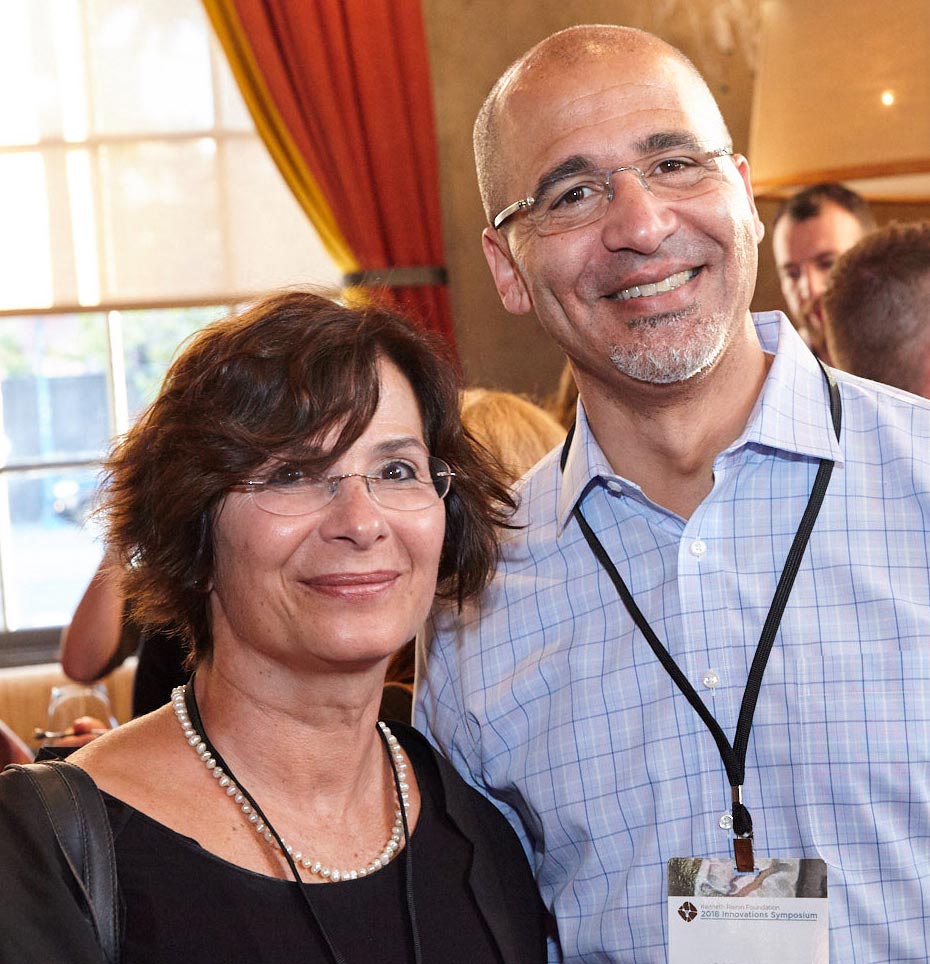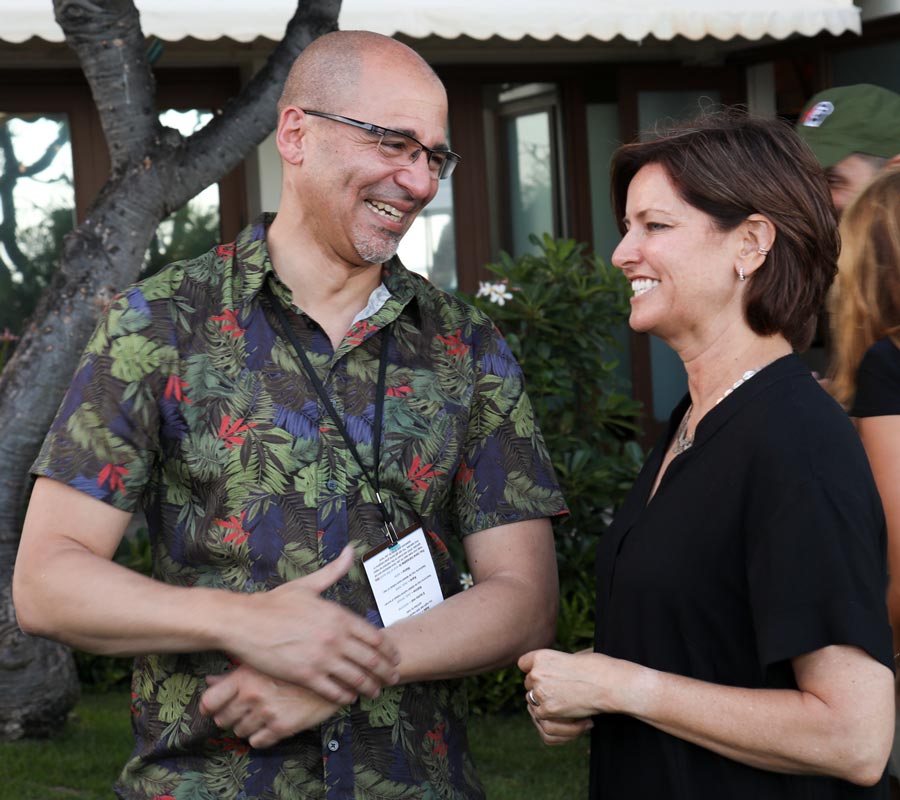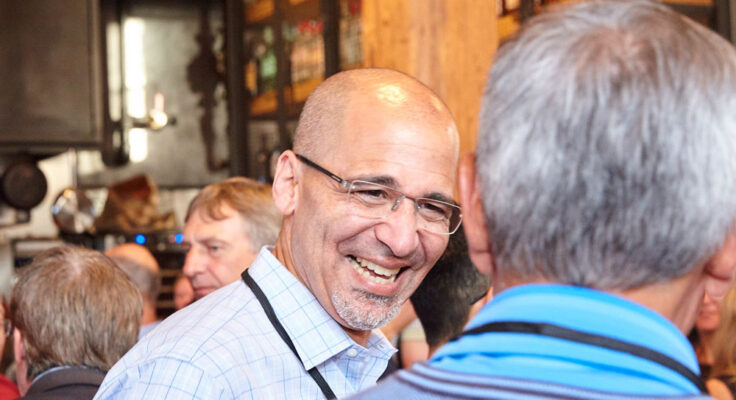The Kenneth Rainin Foundation’s Board of Directors plays an essential role in furthering our mission. In this Board profile series, our goal is to share how our Board members’ experiences and perspectives contribute to our work.
We continue the series with a profile of William Rogers, who joined our Board of Directors in 2017. William is the CEO of Goodwill San Francisco Bay and has spent his career working in service of the greater good. William speaks about the value of “second chances,” which stems from his life story and now shapes his leadership philosophy overseeing a 1,000+ person organization. In 2022, William was honored with the prestigious 2022 Peter E. Haas Public Service Award, recognizing his contribution to creating stronger, more connected and equitable communities. Following are highlights from our conversation with him.
What drew you to your role as a Rainin Foundation Board member?
I love Jen Rainin and have always been impressed by the Foundation’s multifaceted focus on early childhood education, health and the arts. I say no to a lot of things, but when Jen invited me to join the Board, I couldn’t say no!

I have a deep appreciation for each of the Rainin Foundation’s priority areas and find myself drawn to our health investments. Early in my career, I worked as a case manager for HIV-positive youth. I saw how investments in HIV directly and dramatically changed the course of their lives. People I cared for deeply went from the fear of dying rapidly from a terminal condition to living joyous, meaningful and productive lives.
If more private foundations had been willing to invest in treatments in the early years of the AIDS epidemic, we might have made progress more quickly. I love that the Rainin Foundation supports cutting-edge therapies for Inflammatory Bowel Disease, another chronic health condition that impacts over three million people in the United States. The Rainin Foundation is unrelenting in its search for effective treatments and a cure.
How has your background shaped you?
I grew up near South Central Los Angeles. When I was 16, I realized I was gay. My father figured it out and I was given an impossible choice—pretend not to be gay or leave home. I chose to leave. I lived on the streets for many months and spent the next four years struggling. I knew I wanted to go to college but wasn’t sure how. I started Santa Monica Community College four times and dropped out all four times. Each time I dropped out, I had a school counselor who would say to me, “William, you’re just not ready yet. You’ve got to promise me you’re not going to give up.”
The fifth time I started, it stuck. I wound up getting mostly A’s, got pushed to run for student body president, and won. I transferred to the University of California, Berkeley, and graduated with honors. My father and I eventually reconciled. He came to my UC Berkeley graduation. I ultimately went on to earn a master’s degree from the University of San Francisco.
My experiences have made me a big believer in second chances. Our mission at Goodwill is to remove barriers for people who need those second chances. Sometimes people make mistakes. Sometimes people also find themselves in circumstances beyond their control. Often, it’s a combination of both. But like all of us, they deserve an opportunity to move forward with dignity. I see a parallel with the Rainin Foundation’s work in early childhood education, where we support kids by removing barriers associated with poverty and language.
What stands out to you about the Foundation’s values of interdependence, creativity and equity?
I deeply share the Foundation’s belief that we are fundamentally all connected. We cannot shield ourselves from what’s happening to others—we are all impacted.

When people are encouraged to be creative, there will be more artists able to capture the lessons of our time. That impacts all of us.
When all children are given the opportunity to read at grade level, there will be more students of color and first generation graduates completing college. That impacts all of us.
When people receive timely care for chronic diseases, there will be more healthy people able to fully participate in society. That impact all of us.
What I love about the Foundation is that these values aren’t just a page on a website, but rather serve as a filter for everything we do. We live these values.
What is important to you about your role as a Board member?
I strive to provide an alternative perspective, set clear strategies, ensure the financial longevity of the foundation and support the work of the CEO and staff. I’m removed from the day-to-day dynamics of the organization, so I can add value by focusing on the big picture and our strategy. The Foundation also gives me a fresh outlook on my work at Goodwill. As someone who leads an organization that also seeks grant funding, being on the Board of the Rainin Foundation gives me a 360-degree view of the nonprofit sector.
How do you approach your discretionary grantmaking?
The discretionary grantmaking funds given to Board members are tremendously valuable. I am always deeply grateful for the opportunity and privilege to support our diverse community through the Rainin Foundation Board discretionary grants. There are so many needs and so many organizations doing great work in our region. By empowering us to participate in the grantmaking process, we see the impact first-hand of the investments we are making. It helps us be more empathetic and effective stewards of the Foundation’s resources.
Much of my discretionary giving focuses on equity, social and racial justice and economic mobility. I’ve targeted organizations that serve traditionally underserved populations, such as Rising Sun Center for Opportunity, Berkeley Hope Scholars, Give One Dollar Per Day, Black Achievement, Success and Engagement (BASE), Community Empowerment Activists Program and Code Tenderloin. Through scholarships for first-time college students of color, life-enriching opportunities for younger kids or art spaces for formerly homeless individuals, these incredible organizations are creating opportunities—second chances—for people every day throughout our community.
What do you think might be least understood about Rainin Foundation Board members?
Jen has courageously nominated Board members who have knowledge on the grant-seeking side, as well as lived experiences that come from proximity to many of the issues the Foundation focuses on. As Board members, we are less removed from our grantees, which enables us to be better partners.

